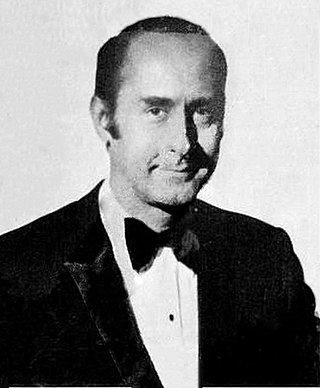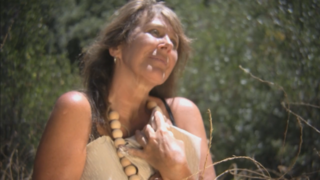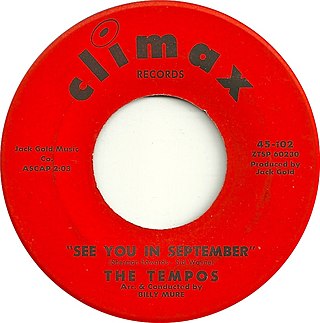Heavy metal may refer to:

Henry Mancini was an American composer, conductor, arranger, pianist and flautist. Often cited as one of the greatest composers in the history of film, he won four Academy Awards, a Golden Globe, and twenty Grammy Awards, plus a posthumous Grammy Lifetime Achievement Award in 1995.
Double Trouble may refer to:
Down to Earth may refer to:

Alan Price is an English musician who first found prominence as the original keyboardist of the English rock band the Animals. He left the band in 1965 to form the Alan Price Set; his hit singles with and without the group include "Simon Smith and the Amazing Dancing Bear", "The House That Jack Built", "Rosetta" and "Jarrow Song". Price is also known for work in film and television, taking occasional acting roles and composing the soundtrack to Lindsay Anderson's film O Lucky Man! (1973). He was inducted into the Rock and Roll Hall of Fame in 1994 as a member of the Animals.
Venom is a class of animal toxins.

Jennifer Vashti Bunyan is an English singer-songwriter. Beginning her career in the mid-1960s, she released her debut album, Just Another Diamond Day, in 1970. The album sold very few copies and Bunyan, discouraged, abandoned her musical career. By 2000, her album had acquired a cult following; it was re-released and Bunyan recorded more songs, initiating the second phase of her musical career after a gap of thirty years. She released two more albums: Lookaftering in 2005, and Heartleap in 2014.
Hocus-pocus is an exclamation used by magicians, usually the magic words spoken when bringing about some sort of change.
"That's Life" is a popular song written by Dean Kay and Kelly Gordon and first recorded in 1963 by Marion Montgomery. The song has an uplifting message that, despite the ups and downs in life, one should not give up but keep positive, because soon one will be "back on top."
A soundtrack album is any album that incorporates music directly recorded from the soundtrack of a particular feature film or television show. The first such album to be commercially released was Walt Disney's Snow White and the Seven Dwarfs, the soundtrack to the film of the same name, in 1938. The first soundtrack album of a film's orchestral score was that for Alexander Korda's 1942 film Rudyard Kipling's Jungle Book, composed by Miklós Rózsa.

"Happenings Ten Years Time Ago" is a song by the English group the Yardbirds. Written and recorded in 1966, it is considered one of their most progressive works. The song was the group's first to feature the dual-lead guitar line-up of Jeff Beck and Jimmy Page. The two contribute an array of guitar parts during the instrumental sections, described as "a full-on six-string apocalypse". Lyrically, it deals with notions of past life and déjà vu.

Yellow Submarine is the tenth studio album by the English rock band the Beatles, released on 13 January 1969 in the United States and on 17 January in the United Kingdom. It is the soundtrack to the animated film of the same name, which premiered in London in July 1968. The album contains six songs by the Beatles, including four new songs and the previously released "Yellow Submarine" and "All You Need Is Love". The remainder of the album is a re-recording of the film's orchestral soundtrack by the band's producer, George Martin.
In Cold Blood is a 1966 book by Truman Capote.

"Alfie" is a song written by Burt Bacharach and Hal David to promote the 1966 film Alfie. The song was a major hit for Cilla Black (UK) and Dionne Warwick (US).

"The Look of Love" is a popular song composed by Burt Bacharach and Hal David and originally popularized by English pop singer Dusty Springfield. The song is notable for its sensuality and its relaxed bossa nova rhythm. The song was featured in an extended slow-motion interlude to the 1967 spoof James Bond film Casino Royale. In 2008, the song was inducted into the Grammy Hall of Fame. It also received a Best Song nomination at the 1968 Academy Awards. The song partially inspired the film Austin Powers: International Man of Mystery (1997).
Riding High may refer to:

"See You in September" is a song written by Sid Wayne and Sherman Edwards. It was first recorded by the Pittsburgh vocal group the Tempos. This first version peaked at No. 23 in the summer of 1959. The most popular take on "See You In September" was by the Happenings in 1966, which reached No. 3.
Valley of the Dolls may refer to:

The soundtrack of the film The Sound of Music, music and lyrics by Rodgers and Hammerstein, was released in 1965 by RCA Victor and is one of the most successful soundtrack albums in history, having sold more than 20 million copies worldwide. The soundtrack has been issued in German, Italian, Spanish and French.

"On a Clear Day (You Can See Forever)" is a song written by Burton Lane (music) and Alan Jay Lerner (lyrics) for the 1965 Broadway musical On a Clear Day You Can See Forever. It was subsequently performed by American actress and vocalist Barbra Streisand in the 1970 film adaptation of the musical.
This page is based on this
Wikipedia article Text is available under the
CC BY-SA 4.0 license; additional terms may apply.
Images, videos and audio are available under their respective licenses.









